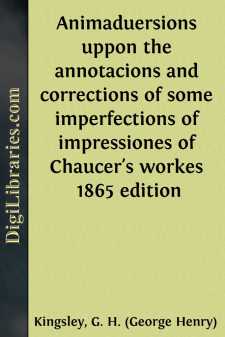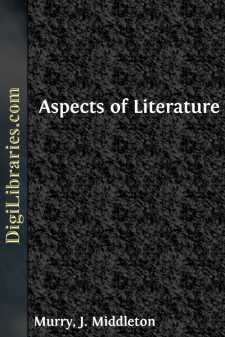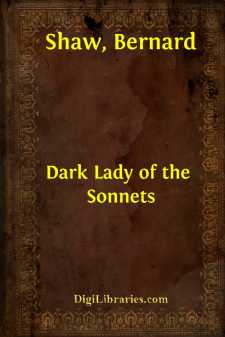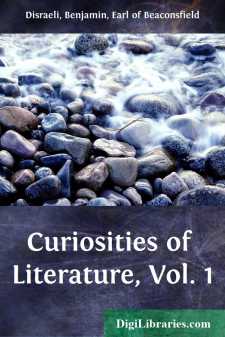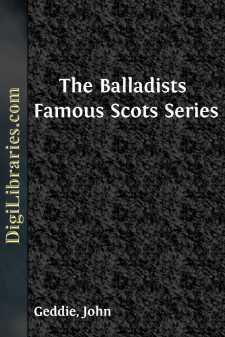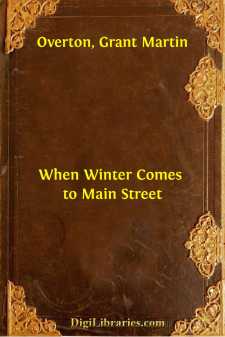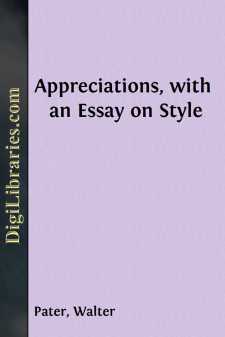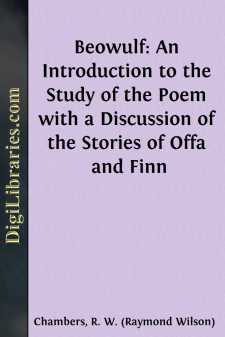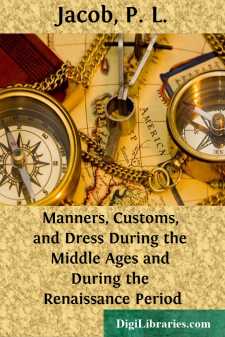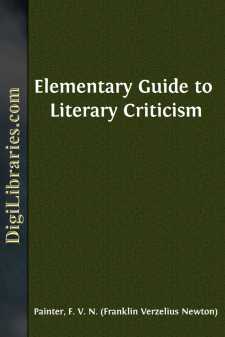Literary Criticism
- American 18
- Ancient and Classical 3
- Asian 1
- Australian & Oceanian 1
- Books & Reading 8
- Caribbean & Latin American 2
- Drama 2
- English, Irish, Scottish, Welsh 49
- European 7
- General 37
- Horror 1
- Humor 2
- Jewish 2
- Medieval 2
- Middle Eastern 3
- Poetry 7
- Renaissance 6
- Russian & Former Soviet Union 1
- Shakespeare 27
Literary Criticism Books
Sort by:
PREFACE. Although only the grandson of the first of his name, the author of the following interesting specimen of 16th-century criticism came of a family of great antiquity, of so great an antiquity, indeed, as to preclude our tracing it back to its origin. This family was originally known as the “De Botfelds,” but in the 15th century one branch adopted the more humble name of “Thynne,” or...
more...
The Function of Criticism It is curious and interesting to find our younger men of letters actively concerned with the present condition of literary criticism. This is a novel preoccupation for them and one which is, we believe, symptomatic of a general hesitancy and expectation. In the world of letters everything is a little up in the air, volatile and uncrystallised. It is a world of rejections and...
more...
by:
Bernard Shaw
How the Play came to be Written I had better explain why, in this little piece d'occasion, written for a performance in aid of the funds of the project for establishing a National Theatre as a memorial to Shakespear, I have identified the Dark Lady with Mistress Mary Fitton. First, let me say that I do not contend that the Dark Lady was Mary Fitton, because when the case in Mary's favor (or...
more...
ON THE LIFE AND WRITINGS OF MR. DISRAELI. BY HIS SON. The traditionary notion that the life of a man of letters is necessarily deficient in incident, appears to have originated in a misconception of the essential nature of human action. The life of every man is full of incidents, but the incidents are insignificant, because they do not affect his species; and in general the importance of every...
more...
by:
John Geddie
CHAPTER I BALLAD CHARACTERISTICS'Layés that in harpingBen y-found of ferli thing;Sum beth of wer, and sum of wo,Sum of joye and mirthe also;And sum of treacherie and gile;Of old aventours that fell while;And sum of bourdes and ribaudy;And many ther beth of faëry,—Of all things that men seth;Maist o' love forsoth they beth.'The Lay of the Ash. Who would set forth to explore the realm...
more...
Chapter I THE COURAGE OF HUGH WALPOLE i Says his American contemporary, Joseph Hergesheimer, in an appreciation of Hugh Walpole: “Mr. Walpole’s courage in the face of the widest scepticism is nowhere more daring than in The Golden Scarecrow.” Mr. Walpole’s courage, I shall always hold, is nowhere more apparent than in the choice of his birthplace. He was born in the Antipodes. Yes! In that...
more...
by:
Walter Pater
STYLE [5] SINCE all progress of mind consists for the most part in differentiation, in the resolution of an obscure and complex object into its component aspects, it is surely the stupidest of losses to confuse things which right reason has put asunder, to lose the sense of achieved distinctions, the distinction between poetry and prose, for instance, or, to speak more exactly, between the laws and...
more...
CHAPTER I THE HISTORICAL ELEMENTS Section I. The Problem. The unique MS of Beowulf may be, and if possible should be, seen by the student in the British Museum. It is a good specimen of the elegant script of Anglo-Saxon times: "a book got up with some care," as if intended for the library of a nobleman or of a monastery. Yet this MS is removed from the date when the poem was composed and from...
more...
by:
P. L. Jacob
Preface. he several successive editions of "The Arts of the Middle Ages and Period of the Renaissance" sufficiently testify to its appreciation by the public. The object of that work was to introduce the reader to a branch of learning to which access had hitherto appeared only permitted to the scientific. That attempt, which was a bold one, succeeded too well not to induce us to push our...
more...
CHAPTER I NATURE AND OFFICE OF CRITICISM 1. Purpose of Literary Study. The study or reading of literature ordinarily has a threefold purpose,—knowledge, pleasure, and culture. This purpose shows us both the character of the literature which should be read and the manner in which it should be read. As a rule we should read only books of recognized excellence, and read them with sympathetic...
more...


